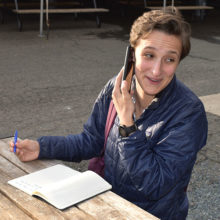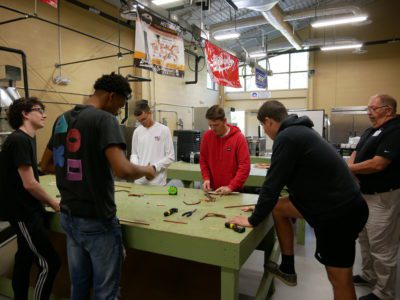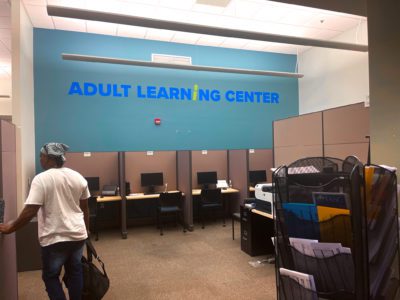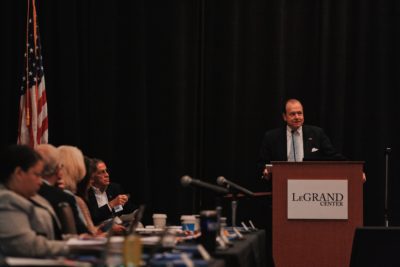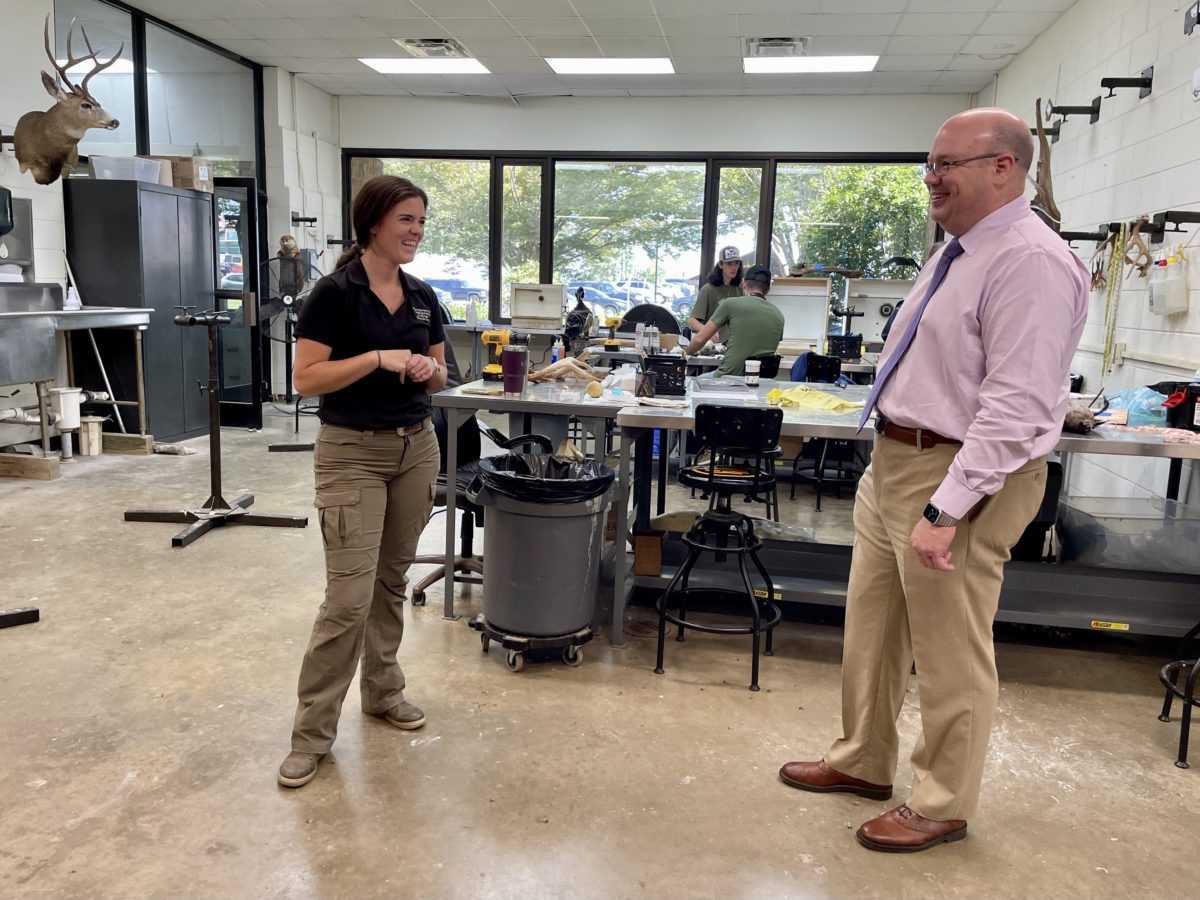
If you want to be in the heart of North Carolina — the exact geographic center of the state — then you have to go to Montgomery County.
Much of the county is covered by the Uwharrie National Forest, a 50,000-acre federally designated region known for its hiking trails, gold rush, and Army Special Forces training. Up against the forest, sitting on over 150 acres, is not just Montgomery Community College (MCC), but also a career and technical education (CTE) center and the county’s only high school.
The choice to centralize these major educational hubs may seem natural for a county at the center of it all, but it’s also strategic.
“One thing I think we as community colleges miss is that, in today’s age, when you’re being peppered with higher education opportunities everywhere … people tend to forget that they’ve got something quite high-quality and low-cost in their own backyard,” said Dr. Chad Bledsoe, president of MCC. “We want people to come to this campus. So, we’ve taken over some things like the local leadership program, we run summer camps, we have the high school next to us. We want people to feel comfortable coming here.”
Prior to 2020, Montgomery County had two public high schools: East Montgomery and West Montgomery. But the school board, faced with sluggish population growth and deteriorating school facilities, voted unanimously in 2016 to consolidate the two high schools and build a new one.
By building the new high school — Montgomery Central — and the new CTE center adjacent to MCC, opportunities for students shifted.
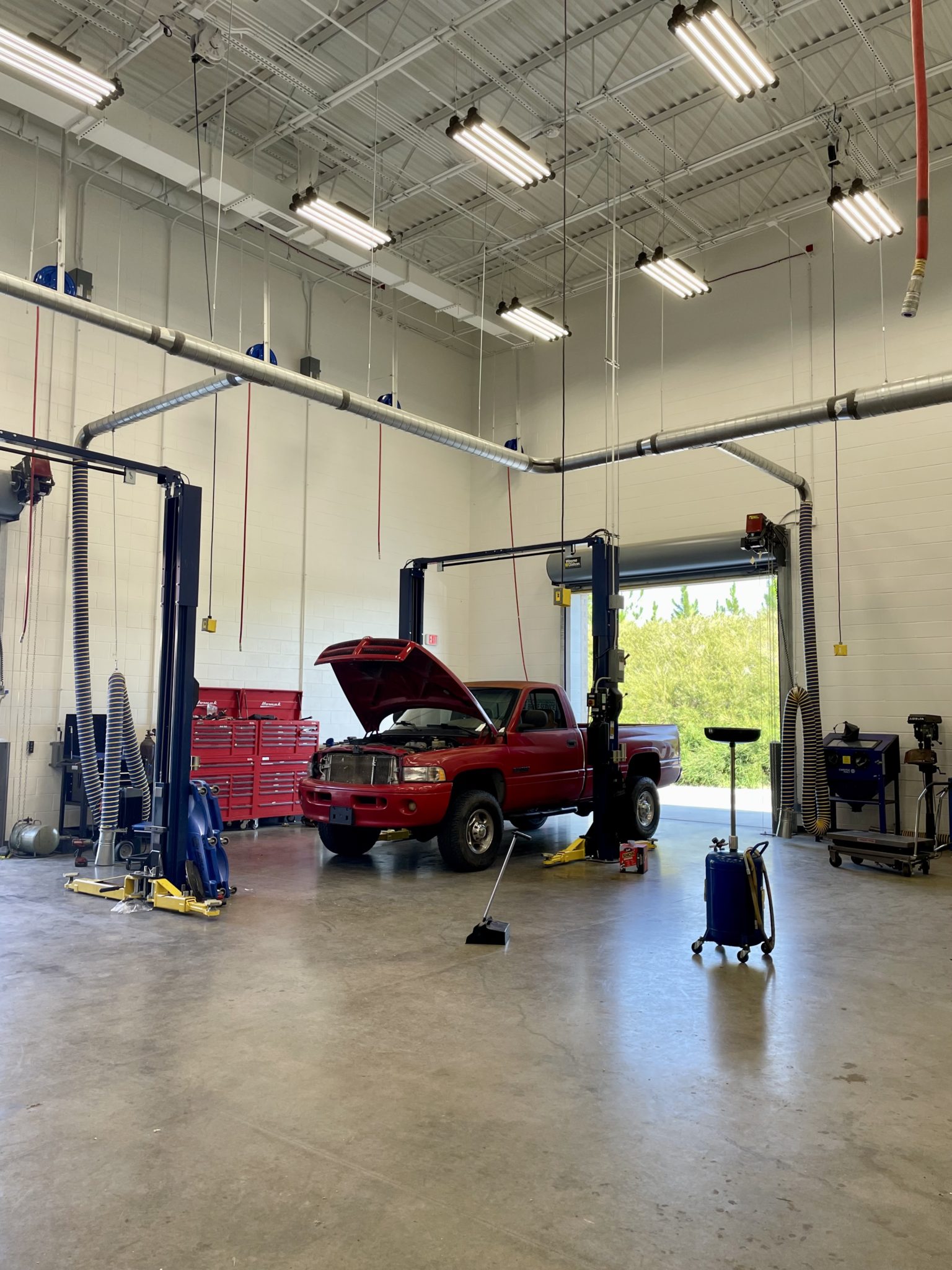
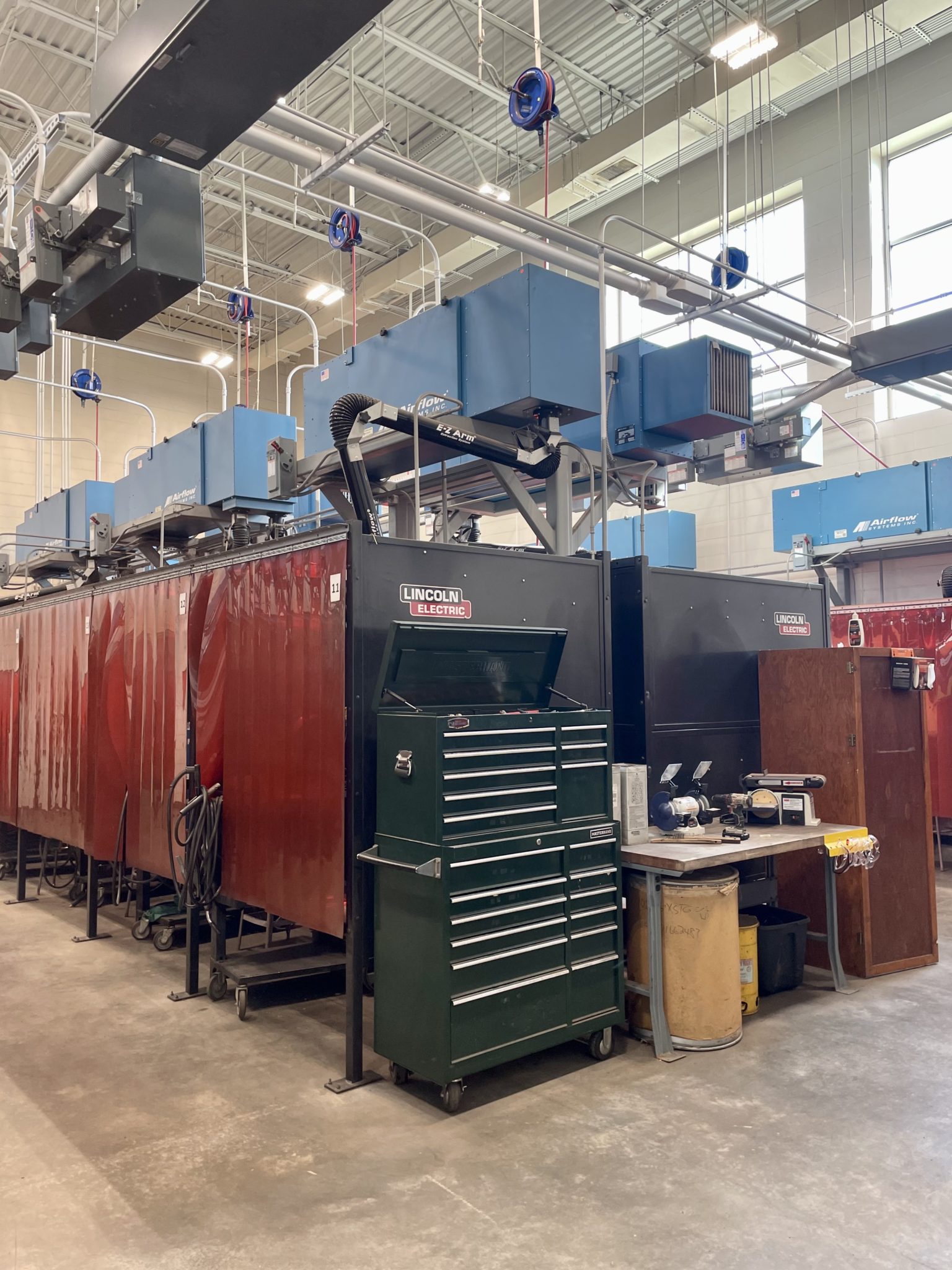
“I think ours is unique in the state, with us having a back door here,” said Lynn Epps, MCC’s director of admissions and retention, as she gestured toward Montgomery Central High School. “The partnership is strong.”
Bledsoe agreed.
“I think we are unique in that we are, to the best of my knowledge, the only system in the state that has all its high school students having this opportunity,” he said. “It wasn’t always easy getting this started, but I will compliment the school, the college, our boards and trustees, and faculty and staff … Everybody worked really hard to do it.”
The hope is that this centralization will continue to bring more students to MCC. According to Epps, Montgomery Central High School is hoping to have at least 90% of their students take at least one college course by 2025.
“We may be a small county, but we want those opportunities for our students totally,” she said.
According to a recent economic impact report, MCC’s impact on the small county (Montgomery County has about 26,000 residents) is notable. MCC added $24.4 million in income to the county economy in 2019-20 — nearly as much on its own as the impact the entire wholesale trade industry has on the county.
In terms of jobs, this means MCC supported about 560 county jobs, or one out of every 22 jobs in the county.
“That’s a pretty significant impact by itself,” Bledsoe said. “So we use that as an institution to remind everybody how important we are to this community … There are no other educational choices in this county, for higher education, other than us.”
For some, that impact is obvious.
Jordan McDuffie was a taxidermy student at MCC. She had grown up hunting and wanted to give taxidermy a try.
“I found this program, which ended up being super close to my house,” she said. “So it was really convenient for me to come down here and really get the hands-on experience of actually learning.”
After graduating from the program, McDuffie was encouraged by her instructor — who was departing his role — to apply for his job. She got it.
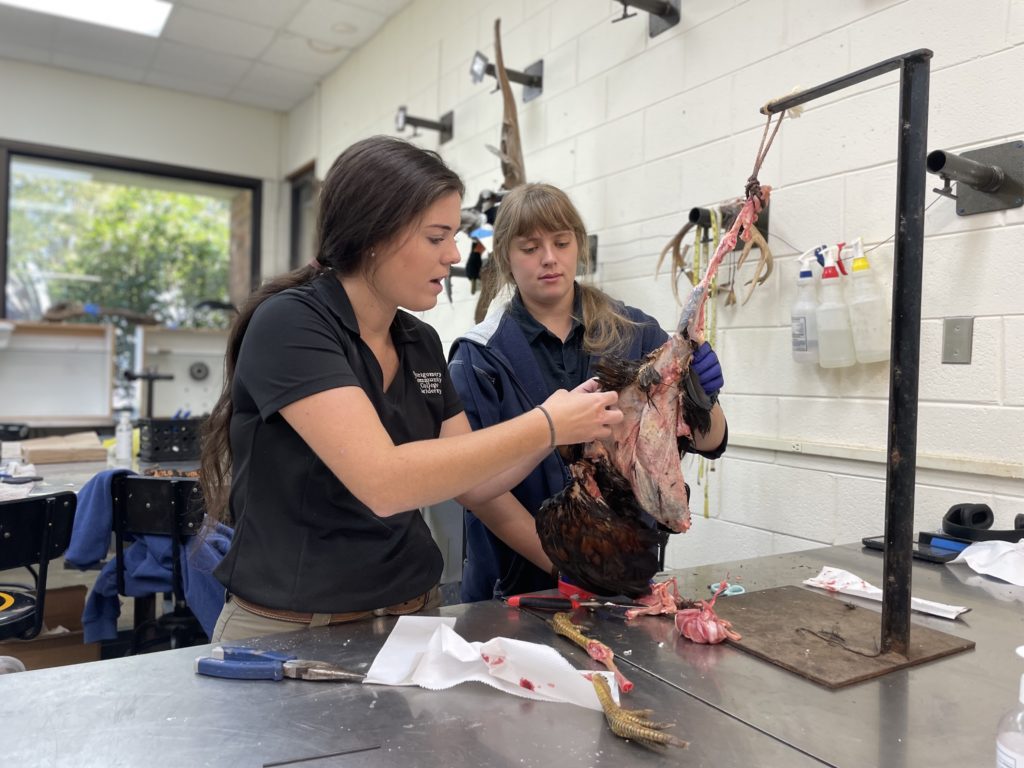
“I was very nervous about it at first,” she said. Now in her third semester as taxidermy instructor, things are going smoothly, she said. She also operates her own taxidermy business locally.
“I have a lot of fun here, and I learn a lot,” said Amy Creider, a student of McDuffie’s who also plans to open her own taxidermy business. “All the different ways you can make something more realistic, these little things that Jordan teaches us, really brings out what you’re doing.”
Bledsoe hopes alumni, like McDuffie, continue to have a positive impact on Montgomery County.
“It’s hard for me to go into a local business or industry and find somebody who hasn’t been here,” he said. “I’ve had the fortune to be at a number of colleges, and this one is a rarity in the way the community supports it.”
